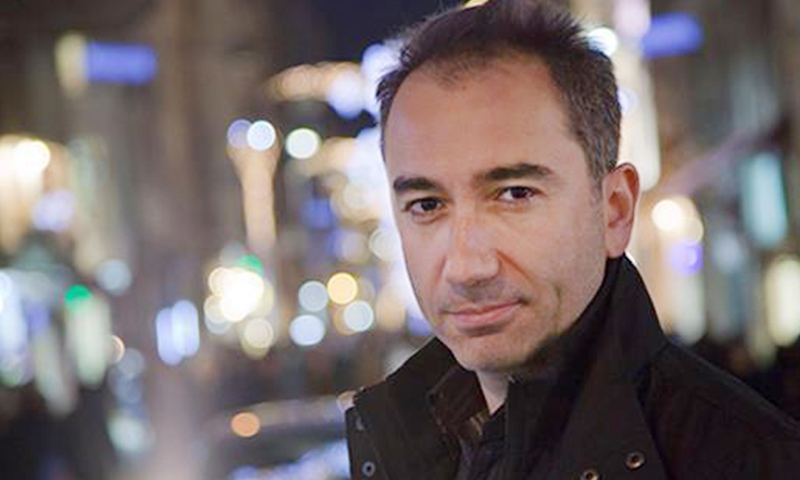The Erdogan Revolution is likely to continue, but it can’t go on forever
More than 55 million Turks went to the polls on June 24 to elect the country’s new president and to form its new parliament. As has happened repeatedly since 2002, the winner was President Recep Tayyip Erdogan. With more than 52 per cent of the vote, Erdogan secured a mandate to rule Turkey until 2023 — the centennial of the founding of the Turkish Republic after the fall of the Ottoman Empire in World War I. To many, especially in the West, yet another victory for Erdogan seems hard to understand. The economy has been gloomy. The Turkish lira is in free fall against other currencies. Democracy is in precipitous decline, too. Moreover, the usually fractured opposition seemed to get its act together this time, forming a coalition and putting forth Muharrem Ince, a charismatic candidate. All this led to a widespread expectation that Erdogan could lose this time, or at least would face a major setback.
But Turkey’s strongman proved as strong as ever. The reason for this is not ballot rigging. It is not even just the way that Erdogan holds a grip on power with his command of the news media. The truth is, most people who voted for Erdogan will vote for him no matter what. They didn’t see this election as a competition between politicians promising better governance. They viewed it as an act of defiance against a century-old existential enemy. The story goes back to modern Turkey’s 1923 founding by Mustafa Kemal Ataturk, whose top-down secularist reforms created a Westernised urban population that viewed him as a saviour. But the same “Kemalist Revolution” left behind a traumatised conservative class, which felt itself as “a stranger in your own home, a pariah in your own land,” as the Islamist poet Necip Fazil put it in 1949.
When multiparty elections were introduced in 1950, the conservatives began to enter the system. But they were repeatedly punished by “the regime’s guardians,” as the secular elite proudly called itself. Only with Erdogan’s election and solidification of power in the early 2000s was this secular hegemony fully broken. This is what Turkey’s religious conservatives are thinking about when they vote for Erdogan and his Justice and Development Party, not his flaws, which they may silently admit he has. They aren’t thinking about newspapers that have been taken over or professors who have been put in jail, but about how the Arabic call to prayer was outlawed in the 1930s and the headscarf was banned in the 1990s. Against this “Old Turkey” that the religious conservatives despise, Erdogan proved to be their saviour. The more sensible among them may sense that their “New Turkey” is hardly any better than the old — but still it is their Turkey.
In other words, Erdogan is surfing on a sense of a historic revolution, driven by a revolutionary zeal. After a century in the wilderness, Turkey has become great — and Muslim — again. The rest is trivia. This sense of world historical importance distorts how conservatives are able to see the rest of the world. They assume that the whole world, and especially the evil cabal that supposedly runs it, attaches as much importance to Turkey’s conservative turn as they do. And so they believe the main theme of Erdogan’s giant propaganda machine: conspiracy. They see a global conspiracy to topple Erdogan; they believe there are endless plots, coup attempts and manipulations against which the New Turkey must be defended. (Of course they felt this suspicion confirmed by the real coup attempt in July 2016.)
This conspiratorial mindset explains away any problems the country faces, and so helps immunise the president. In other countries, a poorly performing economy might make a president unpopular — especially if his own unorthodox economic theories seem to have played a role. In Turkey, it’s used as evidence of an “economic attack” from the West. A recent poll found that four out of five voters — much more than Erdogan’s base — find this conspiracy plausible. It may in the end turn out that the more trouble Turkey faces, the more consolidated Erdogan’s base becomes.
What is most interesting about the New Turkey is its relationship with “democracy.” Human rights groups and Western news outlets may say that Turkish democracy is dying, but Erdogan and his supporters honestly and genuinely believe that Turkey is in fact more democratic than ever. How can that be? For the president and his supporters, “democracy” has one simple meaning: Whoever wins the ballots should lead the nation — by ruling not just the executive but also the legislative and judicial apparatuses, the media, academia, religion and culture. There is hardly any realm in state or society that should remain autonomous from the elected leader, who represents an almost sacred “national will.”
When Westerners speak of “democracy,” however, they intuitively mean liberal democracy, which includes values like freedom of speech, a free press, the rule of law, an independent judiciary, academic freedom and property rights. But the synthesis of liberalism and democracy isn’t necessary; Turkey is just one of several “illiberal democracies” in ascendance around the world. But no one should forget that Turkey is bigger than Erdogan, just as it was bigger than Ataturk. The Erdogan Revolution is likely to continue in the foreseeable future, but it can’t go on forever. Ultimately, when Old Turkey fully fades and the tide turns against the reactionary excesses of Erdogan’s New Turkey, a third Turkey may arise: a Turkey where no group is hegemonic, no one feels like a “pariah in your own land” and finally every person is free.
Related Posts

